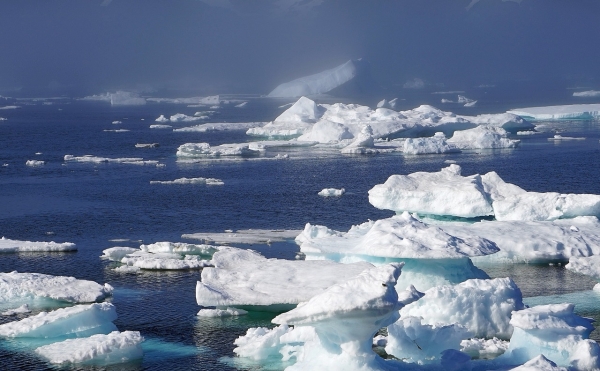The Arctic region is experiencing climate change at a much faster rate than the rest of the world.
The Arctic region is experiencing climate change at a much faster rate than the rest of the world. Melting ice sheets, runoff from thawing permafrost and other factors are rapidly changing the composition of the Arctic Ocean’s water. And that change is being experienced all the way down to the microbial level.
In a Concordia-led study published in the journal ISME Communications, researchers analyzed archival samples of bacteria and archaea populations taken from the Beaufort Sea, bordering northwest Canada and Alaska. The samples were collected between 2004 and 2012, a period that included two years — 2007 and 2012 — in which the sea ice coverage was historically low. The researchers looked at samples taken from three levels of water: the summer mixed layer, the upper Arctic water below it and the Pacific-origin water at the deepest level.
The study examined the microbes’ genetic composition using bioinformatics and statistical analysis across the nine-year time span. Using this data, the researchers were able to see how changing environmental conditions were influencing the organisms’ structure and function.
The researchers found subtle but statistically significant changes in the communities they studied.
Read more at Concordia University
Photo Credit: Barni1




